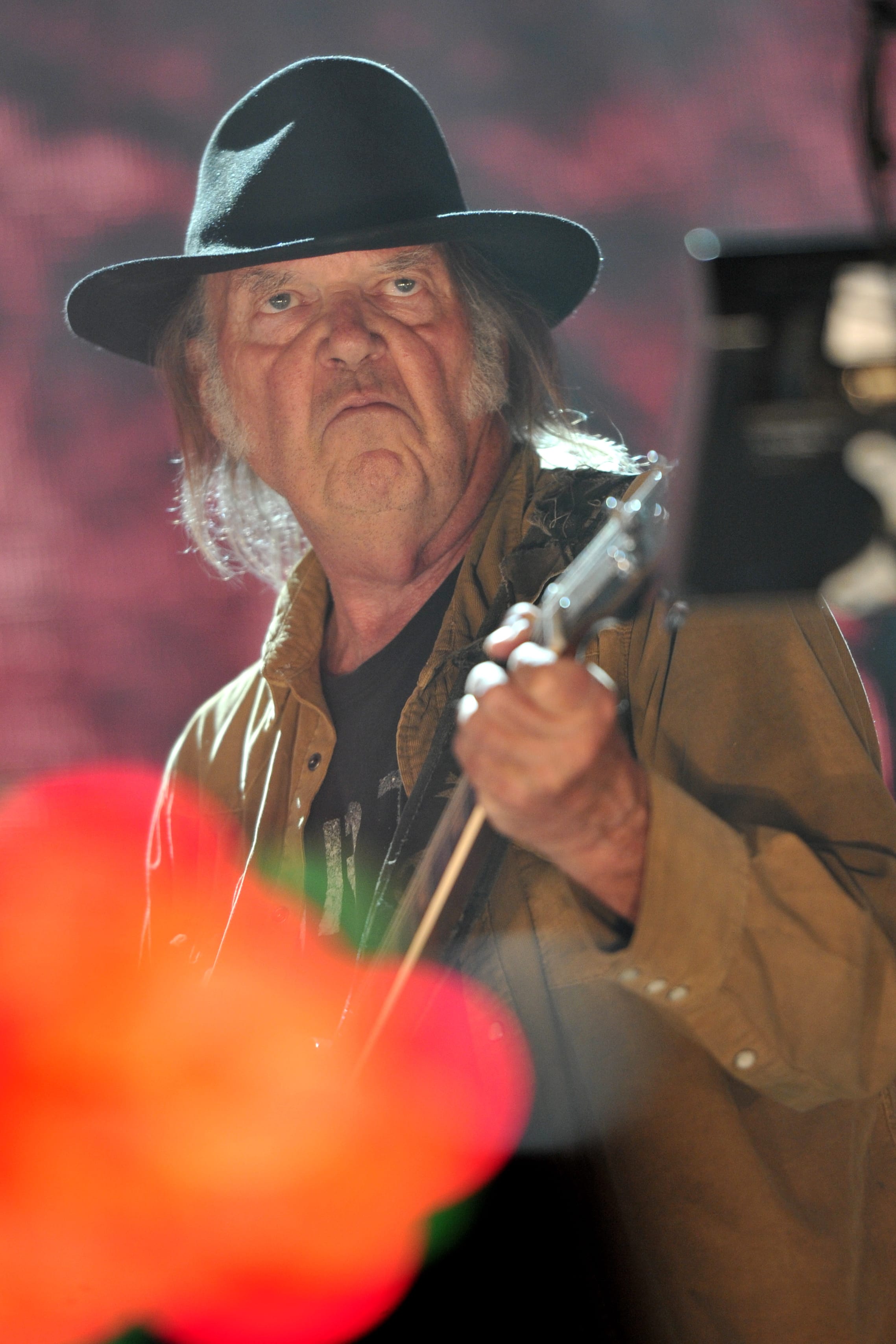CHICAGO — Neil Young looked even more grim and purposeful than usual when he took the stage Sept. 19 at Northerly Island in Chicago. Farm Aid was wrapping up its 30th year, but Young wasn’t exactly celebrating.
The executive board member in the black hat came out fuming as he went after the corporate farm system, naming names and waving his guitar as if he were wading into hand-to-hand combat with his band huddled in front of the drum riser. Young sang from the perspective of a Monsanto executive, recast as the bogey man: “You’re gonna need big money to stand your ground/Or we’re gonna bury you, how does that sound?”
The song, “Workin’ Man,” evoked the rumble of Bob Dylan’s “Maggie’s Farm,” another song about greed and power. Young’s band included Micah and Lukas Nelson, sons of Farm Aid founder Willie Nelson, who followed Young on stage. The young guys jousted and jostled with Young, who was in finger-pointing mode on a handful of songs from his bluntly accusatory recent album, “The Monsanto Years.”
Lines like “Too big to fail, too rich for jail” get the blood boiling but likely didn’t persuade those already skeptical about music’s ability to change the world — let alone shift the momentum away from the big companies that are relentlessly making family farms obsolete. But it was Young’s demeanor, the way he threw himself into the music and tore into his guitar solos that spoke loudest. He has a long, rich history as an environmental and agricultural activist, and Young wasn’t coasting on his past. If anything, he mirrored the words of Farm Aid executives who said the organization “originated in crisis and is facing another crisis today.”



